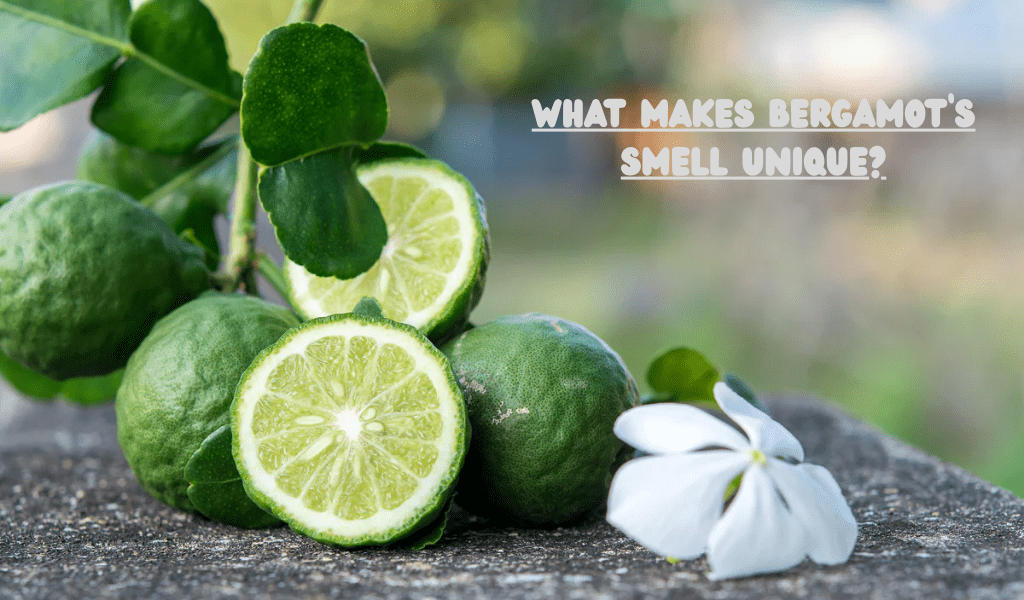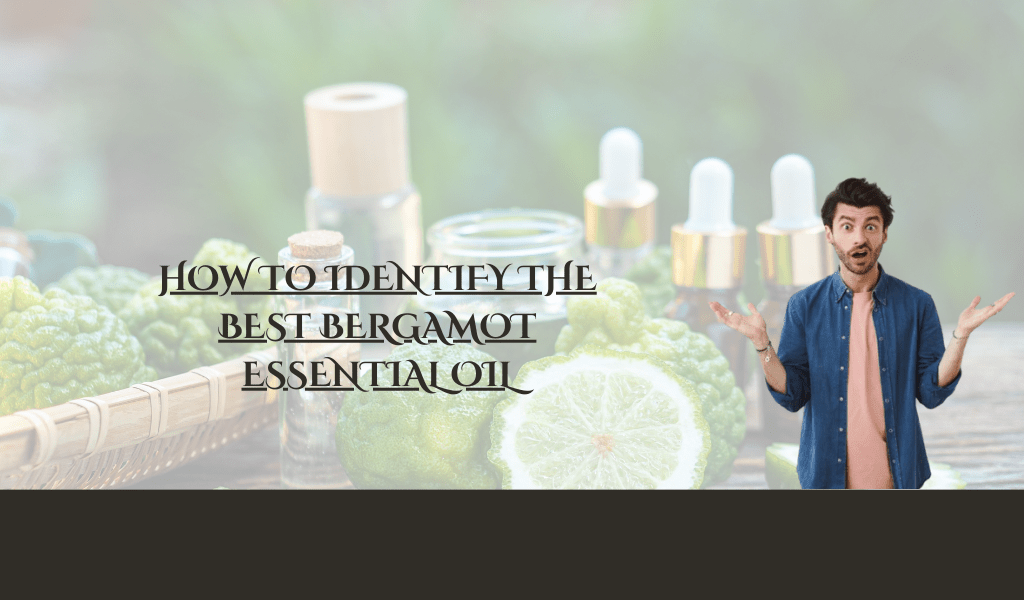Essential oils have fascinated humanity for centuries with their powerful aromas and healing properties. Among them, bergamot essential oil stands out as a true gem. Its refreshing, citrusy yet slightly floral scent is cherished worldwide not just for its delightful fragrance but also for its versatile therapeutic benefits. From uplifting moods and reducing stress to supporting skincare and even boosting immunity, bergamot has carved a permanent place in the world of aromatherapy and natural wellness.
This in-depth post from Kanha Nature Oils will cover all you need to know about the best bergamot scent in essential oils, including its history, how to spot high-quality oils, the science underlying its advantages, and real-world applications.
Introduction to Bergamot Essential Oil
Bergamot essential oil is extracted from the rind of the Citrus bergamia, a citrus fruit primarily grown in Italy’s Calabria region. Unlike other citrus oils such as lemon or orange, bergamot has a unique balance of sweetness, zestiness, and floral warmth, making it one of the most complex and captivating scents in aromatherapy.
Fun fact: bergamot is the key ingredient that gives Earl Grey tea its distinctive aroma and taste. Its fragrance is simultaneously uplifting and calming, which explains why perfumers, therapists, and natural healers have used it for centuries.
What Makes Bergamot’s Smell Unique?
The charm of bergamot lies in its complex chemical composition. The primary compounds include:
Limonene – fresh, citrusy, and energizing
Linalool – floral, calming, and relaxing
Linalyl acetate – sweet, fruity, and balancing
Bergapten – adds depth but also increases photosensitivity
This intricate blend gives bergamot a fragrance profile that is:
Fresh and citrusy (like lemon or orange)
Sweet and fruity (slightly reminiscent of pear or apple)
Floral (similar to lavender’s softness)
Warm and grounding (balancing sharp notes with mellow undertones)
No other essential oil combines such diverse qualities, which is why bergamot is often called the “crown jewel of aromatherapy.”
How to Identify the Best Bergamot Essential Oil
Not all bergamot oils are created equal. To ensure you get the best smell and benefits, here’s what you should look for:
a) Source and Origin
The finest bergamot essential oils come from Calabria, Italy. The unique soil and climate of this region produce fruit with the richest aroma profile.
b) Extraction Method
Cold-press extraction from the fruit peel ensures the oil retains its delicate fragrance. Steam distillation can sometimes alter its aroma.
c) Color and Aroma
High-quality bergamot oil is pale green to yellow in color with a sweet, citrusy, and slightly floral fragrance. If it smells harsh, bitter, or too sharp, it may be adulterated.
d) Label Indicators
Look for:
100% pure, therapeutic-grade essential oil
Botanical name: Citrus bergamia
Country of origin
GC/MS test reports (to verify purity)
e) Packaging
Essential oils should be stored in dark amber or cobalt blue bottles to protect them from light, which can degrade their aroma and properties.
The Benefits of Bergamot Essential Oil
Bergamot essential oil offers a wide range of emotional, physical, and practical benefits. Below are its most powerful uses:
a) Stress and Anxiety Relief
The soothing yet uplifting aroma of bergamot is known to reduce cortisol levels and promote relaxation. Inhalation can calm the nervous system, making it a popular choice in aromatherapy blends for stress, anxiety, and depression.
b) Mood Enhancement
Unlike heavier calming oils, bergamot has a bright, cheerful scent that can uplift moods without sedation. This makes it excellent for people experiencing fatigue, sadness, or emotional burnout.
c) Skincare Benefits
Bergamot oil has antibacterial and anti-inflammatory properties that make it effective in:
Reducing acne breakouts
Balancing oily skin
Soothing eczema and psoriasis
Healing minor wounds and scars
(Note: Always dilute bergamot oil with a carrier oil before applying to the skin, and avoid sun exposure after use due to photosensitivity.)
d) Digestive Aid
Inhaling or massaging diluted bergamot oil may help with indigestion, bloating, and appetite regulation.
e) Immune System Booster
Thanks to its antibacterial and antifungal qualities, bergamot oil supports the immune system and helps fight infections naturally.
f) Sleep Support
Blended with lavender or chamomile, bergamot creates a deeply calming aroma that promotes restful sleep.
g) Natural Deodorizer and Perfume
Its fresh, clean scent makes it a popular natural deodorant and a base for perfumes. Unlike synthetic fragrances, it is gentle on the skin and free from harmful chemicals.
5. Everyday Uses of Bergamot Essential Oil
Bergamot’s versatility makes it easy to integrate into daily routines. Here are some practical ideas:
a) Aromatherapy Diffusion
Add 5–7 drops of bergamot oil to your diffuser for an uplifting and refreshing atmosphere. Perfect for mornings, workspaces, or stressful evenings.
b) Topical Application
Dilute with a carrier oil (such as jojoba, coconut, or almond oil) in a 2–3% dilution ratio and apply to pulse points, temples, or chest for emotional balance.
c) Massage Blends
Combine with lavender or frankincense oil in a carrier base for a relaxing massage that eases tension and improves circulation.
d) Skincare Solutions
Add 1–2 drops to your facial cleanser to fight acne
Mix with aloe vera gel for soothing skin masks
Use in body lotions for fragrance and hydration
e) Bath Rituals
Add a few drops to warm bathwater (diluted in Epsom salts or carrier oil) for a spa-like relaxation experience.
f) Household Cleaning
Its antibacterial power makes bergamot an excellent natural cleaner. Mix it with vinegar, lemon oil, or tea tree oil for homemade cleaning sprays.
g) Perfume and Deodorant
Blend with sandalwood, ylang-ylang, or vanilla essential oils to create a long-lasting, all-natural fragrance.
Safety Precautions When Using Bergamot Oil
Although bergamot oil is generally safe, it’s important to follow these guidelines:
Photosensitivity: Bergamot contains bergapten, which can make skin more sensitive to UV rays. Avoid direct sun exposure for at least 12 hours after topical application.
Dilution: Always dilute with a carrier oil before skin use to prevent irritation.
Pregnancy and Children: Consult a healthcare professional before using on pregnant women, infants, or young children.
Internal Use: Only consume under the guidance of a qualified aromatherapist or medical practitioner.
Best Essential Oil Blends with Bergamot
Bergamot blends beautifully with many oils, enhancing their effects:
For Stress Relief: Bergamot + Lavender + Frankincense
For Energy: Bergamot + Peppermint + Grapefruit
For Sleep: Bergamot + Chamomile + Sandalwood
For Skincare: Bergamot + Tea Tree + Geranium
For Romance: Bergamot + Ylang Ylang + Rose
These combinations amplify the benefits while creating more complex and delightful aromas.
The Science Behind Bergamot Essential Oil
Numerous studies have validated bergamot’s therapeutic potential:
A 2015 study in Evidence-Based Complementary and Alternative Medicine showed that bergamot aromatherapy significantly reduced stress and improved mood in participants.
Research published in Phytotherapy Research found bergamot oil effective in reducing anxiety levels in patients awaiting surgery.
Its antimicrobial properties have been widely documented, confirming its usefulness in skincare and natural medicine.
These scientific validations make bergamot not just a pleasant fragrance, but a legitimate therapeutic tool.
Why Choose Bergamot Over Other Citrus Oils?
While oils like lemon, orange, and grapefruit are also refreshing, bergamot offers something more:
A unique balance of citrus and floral notes
Both uplifting and calming effects
Greater versatility in blending with other oils
A luxurious aroma prized in perfumery and skincare
This makes bergamot the most well-rounded and versatile citrus essential oil available.
Conclusion
Bergamot essential oil is much more than just a pleasant fragrance—it is a powerful ally for the mind, body, and spirit. Its refreshing yet calming aroma makes it a favorite in aromatherapy, while its antibacterial, anti-inflammatory, and mood-enhancing properties extend its benefits far beyond scent.
When choosing bergamot essential oil, always prioritize purity, origin, and proper extraction methods to experience the true essence of its unique fragrance. Whether you diffuse it to elevate your mood, apply it topically for skincare, or blend it into perfumes and massages, bergamot offers countless opportunities to enrich your daily life.
Buy the best bergamot-scented essential oils from Kanha Nature Oils. Click Here:- https://kanhanatureoils.com/product/essential-oils/bergamot-essential-oil/
Kanha Nature Oils
For more information contact: info@aromatherapyoil.in
Mobile Number: 9810805866










No comments:
Post a Comment